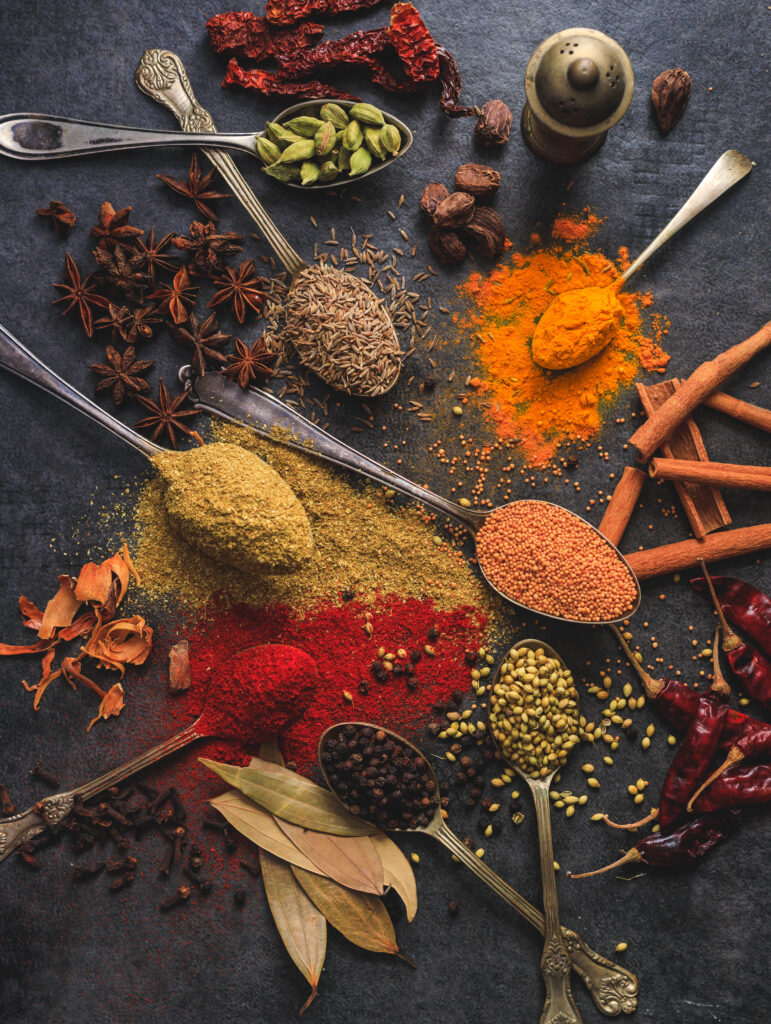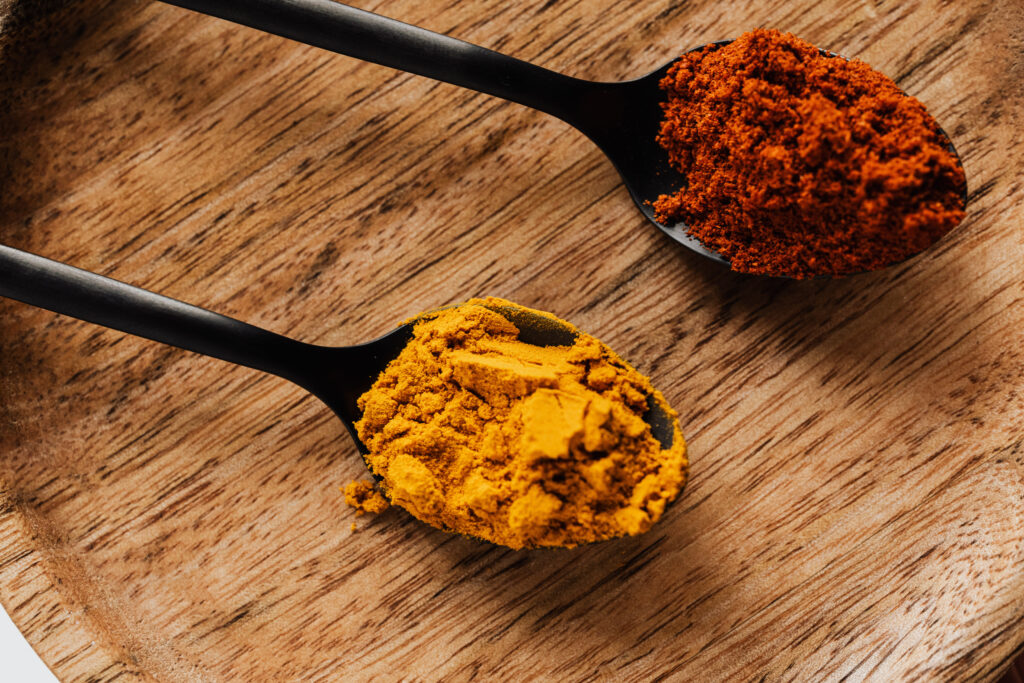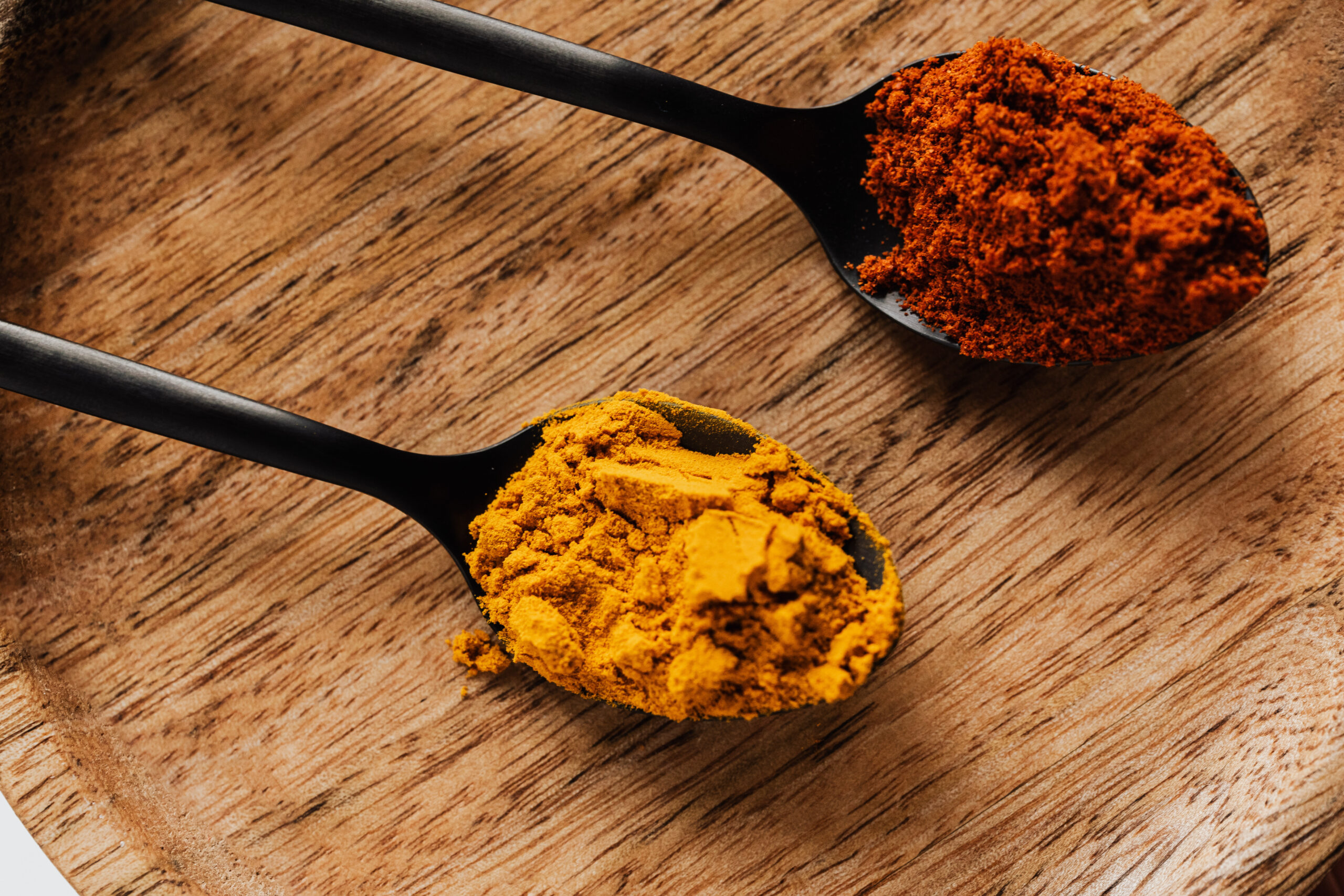Turmeric, the vibrant orange spice commonly found in curry dishes, possesses incredible health benefits that many are just beginning to discover. From reducing inflammation to boosting brain health, the power of turmeric is truly remarkable. With its active ingredient, curcumin, turmeric has been shown to have antioxidant and anti-inflammatory properties. Its potential benefits also extend to improving digestion, enhancing cardiovascular health, and even promoting weight loss. With all these advantages, it’s no wonder that turmeric has gained popularity as a superfood in recent years. So, why not incorporate this golden spice into your daily routine and reap the many rewards it has to offer? Turmeric is a yellow-orange spice that has been treasured for centuries in various cultures for its many health benefits. It is not only a staple in traditional Indian cuisine but also a key component in ancient Ayurvedic and traditional Chinese medicine. Turmeric’s rich history and widespread use make it a truly significant herb.
Table of Contents
The Historical Significance of Turmeric
Turmeric in Ancient Ayurvedic Medicine
In ancient Ayurvedic medicine, turmeric has been highly valued for its medicinal properties. It is believed to have a variety of health benefits, including promoting digestion, purifying the blood, and supporting healthy joint function. Turmeric is also used to balance the three doshas (Vata, Pitta, and Kapha) in Ayurvedic practice. Ayurvedic healers have used turmeric in powdered form, as well as in various herbal formulations, to address a wide range of health issues.
Turmeric as Part of Traditional Chinese Medicine
Turmeric also holds a significant place in traditional Chinese medicine. It is considered warm in nature and is used to invigorate the blood, promote circulation, and support overall well-being. In traditional Chinese medicine, turmeric is typically combined with other herbs and used in formulas to address specific ailments, such as pain, inflammation, and digestive disorders. The combination of turmeric with other herbs in traditional Chinese medicine is believed to enhance its effectiveness.
Turmeric’s Role in Traditional Indian Cuisine
Turmeric is an integral part of traditional Indian cuisine, not only for its vibrant color but also for its flavor and health benefits. It is used in a wide range of dishes, including curries, soups, rice, and pickles. Turmeric adds a warm and earthy flavor to dishes and is known for its ability to enhance the taste and aroma of various foods. Its use in traditional Indian cuisine can be traced back thousands of years and continues to be celebrated for its culinary and health benefits.
Understanding the Nutritional Composition of Turmeric
Curcumin: The Active Ingredient in Turmeric
The primary active compound in turmeric responsible for its health benefits is called curcumin. Curcumin is a polyphenol with powerful antioxidant and anti-inflammatory properties. It is known for its vibrant yellow color and is considered the main bioactive component in turmeric. Curcumin’s therapeutic effects have been the subject of numerous studies and research.
Rich in Antioxidants and Phytonutrients
Apart from curcumin, turmeric contains other potent antioxidants and phytonutrients. These compounds help combat free radicals in the body and reduce oxidative stress, which can contribute to chronic diseases and aging. The high antioxidant content of turmeric makes it a valuable addition to a healthy diet.
Essential Vitamins and Minerals Found in Turmeric
Turmeric is also a good source of essential vitamins and minerals. It contains vitamin C, vitamin E, and several B vitamins, which are important for overall health and vitality. Additionally, turmeric provides minerals such as potassium, calcium, and iron, which are necessary for various physiological processes in the body.

Turmeric’s Impact on Inflammation and Pain Relief
Curcumin’s Anti-inflammatory Properties
One of the most well-known benefits of turmeric is its ability to reduce inflammation. Curcumin has been shown to inhibit inflammatory pathways in the body, thereby reducing pain and inflammation associated with conditions like arthritis, joint pain, and inflammation-related diseases. Its anti-inflammatory properties make turmeric a popular natural alternative for managing chronic pain and promoting overall well-being.
Turmeric as a Natural Pain Reliever
In addition to its anti-inflammatory effects, turmeric also acts as a natural pain reliever. It can help alleviate discomfort and soreness caused by various conditions, including muscle strains, headaches, and menstrual cramps. Many individuals incorporate turmeric into their daily routine to support overall pain management.
Promising Results in the Treatment of Arthritis
Turmeric has shown promising results in the treatment of arthritis, a condition characterized by joint inflammation and pain. Studies have indicated that curcumin’s anti-inflammatory properties may help reduce joint swelling, stiffness, and discomfort associated with arthritis. By incorporating turmeric into their diet or taking curcumin supplements, individuals with arthritis may experience improved symptoms and enhanced quality of life.
The Potential Role of Turmeric in Cancer Prevention
Studies Showing Turmeric’s Anti-cancer Properties
Research suggests that turmeric may play a role in cancer prevention. Numerous studies have investigated the potential anti-cancer effects of curcumin, the active compound in turmeric. These studies have shown that curcumin has anti-inflammatory, antioxidant, and anti-tumor properties that may help inhibit the growth and spread of cancer cells.
Curcumin’s Ability to Inhibit Tumor Growth
Curcumin has been found to inhibit tumor growth in various types of cancer, including breast, colon, prostate, and lung cancer. It does so by interfering with key signaling pathways involved in cancer cell proliferation and metastasis. While further research is needed to fully understand curcumin’s mechanism of action, its potential as a natural cancer-fighting agent is an area of great interest.
Other Mechanisms of Action in Cancer Prevention
In addition to its effects on tumor growth, curcumin may have other mechanisms of action that contribute to cancer prevention. It has been shown to induce apoptosis, or programmed cell death, in cancer cells while sparing healthy cells. Curcumin also has the ability to suppress tumor-induced angiogenesis, the process by which tumors form new blood vessels to support their growth. These multifaceted mechanisms make turmeric a promising ally in the fight against cancer.

Turmeric’s Effects on Digestive Health
Turmeric’s Traditional Use in Digestive Disorders
Turmeric has a long-standing tradition of use in addressing digestive disorders. Its natural anti-inflammatory properties can help soothe the digestive tract and promote healthy digestion. Turmeric is often used to relieve symptoms of indigestion, bloating, and stomach discomfort.
Curcumin’s Potential to Treat Inflammatory Bowel Disease
Curcumin has shown promise in the treatment of inflammatory bowel disease (IBD), including conditions such as Crohn’s disease and ulcerative colitis. It can help alleviate inflammation in the intestines, reduce symptoms, and improve overall gut health. While more research is needed to fully understand the therapeutic effects of curcumin in IBD, its potential as a natural remedy is encouraging.
Improved Digestive Function and Gut Health
Regular consumption of turmeric may contribute to improved digestive function and gut health. Its ability to reduce inflammation and promote a healthy gut microbiome can help support optimal digestion and nutrient absorption. Incorporating turmeric into your diet may help maintain a healthy digestive system and contribute to overall well-being.
Turmeric’s Impact on Brain Health and Cognitive Function
Promising Findings in Turmeric’s Effects on Alzheimer’s Disease
Alzheimer’s disease is a neurodegenerative condition characterized by memory loss and cognitive decline. Studies have shown that curcumin may have neuroprotective effects and could potentially help prevent or slow down the progression of Alzheimer’s disease. While more research is needed to confirm these findings, the potential benefits of turmeric in maintaining brain health are intriguing.
Curcumin’s Ability to Cross the Blood-Brain Barrier
One of the key factors that make curcumin an appealing candidate for brain health is its ability to cross the blood-brain barrier. This barrier protects the brain from harmful substances but also limits the delivery of therapeutic compounds. Curcumin’s ability to penetrate the blood-brain barrier enables it to directly interact with brain cells and potentially exert its protective effects.
Potential Benefits for Mood and Depression
Curcumin has also been studied for its potential effects on mood and depression. Some research suggests that curcumin may help regulate neurotransmitters implicated in mood disorders, such as serotonin and dopamine. While turmeric should not replace professional treatment for depression, incorporating it into a balanced lifestyle may complement existing therapies and promote overall mental well-being.

Exploring Turmeric’s Role in Heart Health
Reduced Risk of Heart Disease in Turmeric Consumers
Studies have indicated that individuals who consume turmeric regularly may have a reduced risk of heart disease. Turmeric’s anti-inflammatory and antioxidant properties contribute to cardiovascular health by reducing inflammation, preventing the oxidation of cholesterol, and improving blood vessel function.
Curcumin’s Ability to Improve Cardiovascular Function
Curcumin has been found to improve various aspects of cardiovascular health. It can help lower blood pressure, reduce LDL cholesterol levels, and prevent the formation of blood clots. These factors contribute to maintaining a healthy cardiovascular system and reducing the risk of heart disease.
Positive Effects on Cholesterol Levels
High cholesterol levels are a risk factor for heart disease. Studies have shown that curcumin may help lower LDL cholesterol levels, often referred to as “bad” cholesterol. Curcumin achieves this by reducing cholesterol synthesis in the liver, enhancing cholesterol excretion, and inhibiting the oxidation of LDL particles. By incorporating turmeric into your diet along with a healthy lifestyle, you can support optimal heart health.
Turmeric’s Potential for Weight Management
Curcumin’s Role in Weight Loss and Obesity Prevention
Curcumin may play a role in weight management and obesity prevention. Research suggests that curcumin can help regulate fat metabolism by increasing fat oxidation and reducing fat accumulation. Its ability to suppress the growth of fat cells and curb appetite makes turmeric a potential ally for those striving for weight loss or maintaining a healthy weight.
Metabolism-Boosting Properties of Turmeric
Turmeric has been found to have metabolism-boosting properties that can support weight management efforts. By enhancing metabolic function, turmeric may help the body burn calories more efficiently and promote weight loss. Incorporating turmeric into your diet, combined with regular physical activity and a balanced diet, can contribute to achieving your weight management goals.
Effectiveness of Turmeric in Managing Metabolic Disorders
In addition to its potential for weight management, turmeric may also be beneficial for individuals with metabolic disorders such as diabetes. Studies have indicated that curcumin can help improve insulin sensitivity, regulate blood sugar levels, and reduce the risk of complications associated with metabolic disorders. By incorporating turmeric into your daily routine, you may support healthy metabolic function and overall well-being.
Turmeric’s Impact on Skin Health and Beauty
Traditional Use of Turmeric in Skincare
Turmeric has a long history of use in skincare due to its potent anti-inflammatory and antioxidant properties. It has been used in traditional beauty regimens to promote radiant skin, reduce blemishes, and enhance the overall complexion. The application of turmeric-based face masks or creams can help soothe irritated skin and improve its appearance.
Curcumin’s Anti-aging and Skin-soothing Properties
Curcumin’s antioxidant properties make it a valuable ingredient in anti-aging skincare products. It helps neutralize free radicals, which can contribute to premature aging and the development of wrinkles. Additionally, turmeric’s natural anti-inflammatory properties can calm and soothe skin, making it a natural remedy for various skin conditions.
Potential Treatment for Skin Conditions
Turmeric may offer potential benefits for individuals with skin conditions such as acne, eczema, and psoriasis. Its anti-inflammatory properties can help reduce redness, swelling, and itching associated with these conditions. While further research is needed to fully understand turmeric’s effects on specific skin disorders, its natural properties make it a promising addition to skincare routines.
Incorporating Turmeric into Your Diet and Lifestyle
Adding Turmeric to Culinary Creations
One of the easiest ways to incorporate turmeric into your diet is by using it in your culinary creations. Turmeric can be added to soups, stews, sauces, and smoothies to enhance flavor and provide health benefits. Its vibrant color and earthy flavor make it a versatile spice that can be enjoyed in various dishes.
Choosing the Right Turmeric Products
When selecting turmeric products, it is important to choose high-quality options. Look for organic turmeric powder or fresh turmeric roots to ensure you are getting the most beneficial compounds. Turmeric supplements are also available for those who prefer a more concentrated form of turmeric.
Safe Consumption and Dosage Guidelines
While turmeric is generally considered safe for most individuals when consumed in moderation, it is always recommended to consult with a healthcare professional, especially if you have any underlying health conditions or are taking medications. They can provide personalized advice on the appropriate dosage and form of turmeric for your specific needs.
In conclusion, turmeric’s historical significance, nutritional composition, and potential health benefits make it a truly remarkable herb. From its roles in ancient medicine to its impact on various aspects of health, turmeric has demonstrated its versatility and therapeutic potential. Whether incorporated into your culinary creations, skincare routine, or as a supplement, turmeric can be a valuable addition to a healthy lifestyle. Remember to embrace the power of turmeric and unlock its health benefits with mindful and safe consumption.

